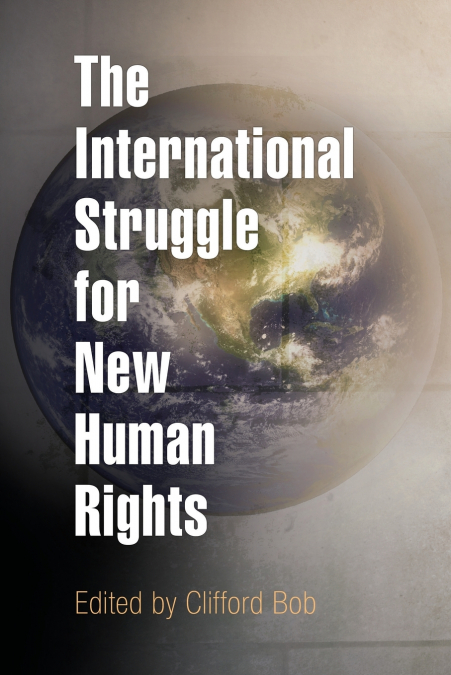
Clifford Bob
In recent years, aggrieved groups around the world have routinely portrayed themselves as victims of human rights abuses. Physically and mentally disabled people, indigenous peoples, AIDS patients, and many others have chosen to protect and promote their interests by advancing new human rights norms before the United Nations and other international bodies. Often, these claims have met strong resistance from governments and corporations. More surprisingly, even apparent allies, such as Amnesty International, Human Rights Watch, and other nongovernmental organizations, have voiced misgivings, arguing that rights proliferation will weaken efforts to protect their traditional concerns: civil and political rights. Why are certain global problems recognized as human rights issues while others are not? How do local activists transform long-standing problems into universal rights claims? When and why do human rights groups, governments, and international organizations endorse new rights? The International Struggle for New Human Rights is the first book to address these issues. Focusing on activists who advance new rights, the book introduces a framework for understanding critical strategies and conflicts involved in the struggle to persuade the human rights movement to move beyond traditional problems and embrace pressing new ones. Essays in the volume consider rights activism by such groups as the South Asian Dalits, sexual minorities, and children of wartime rape victims, while others explore new issues such as health rights, economic rights, and the right to water. Examining both the successes and failures of such campaigns, The International Struggle for New Human Rights will be a key resource not only for scholars but also for those on the front lines of human rights work.